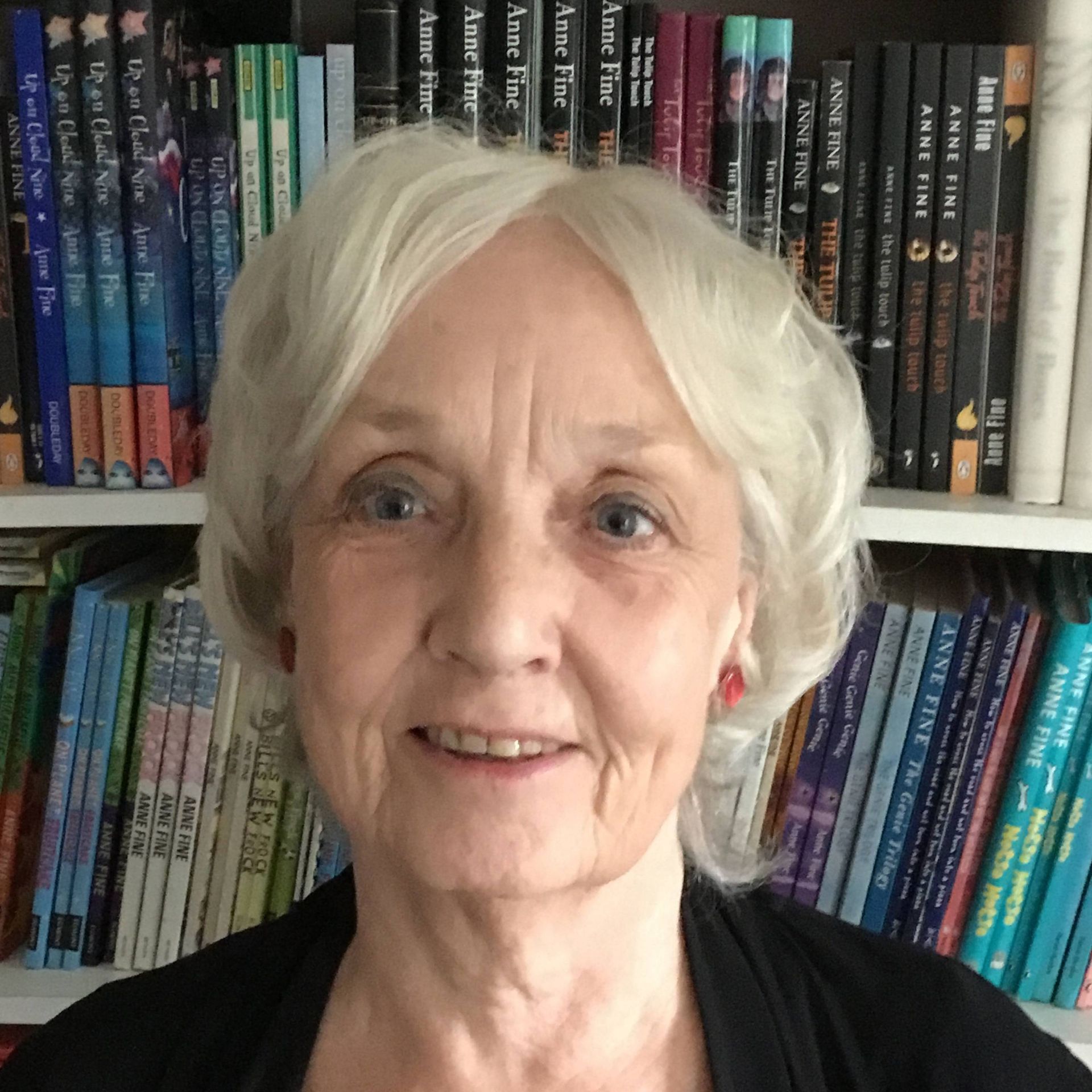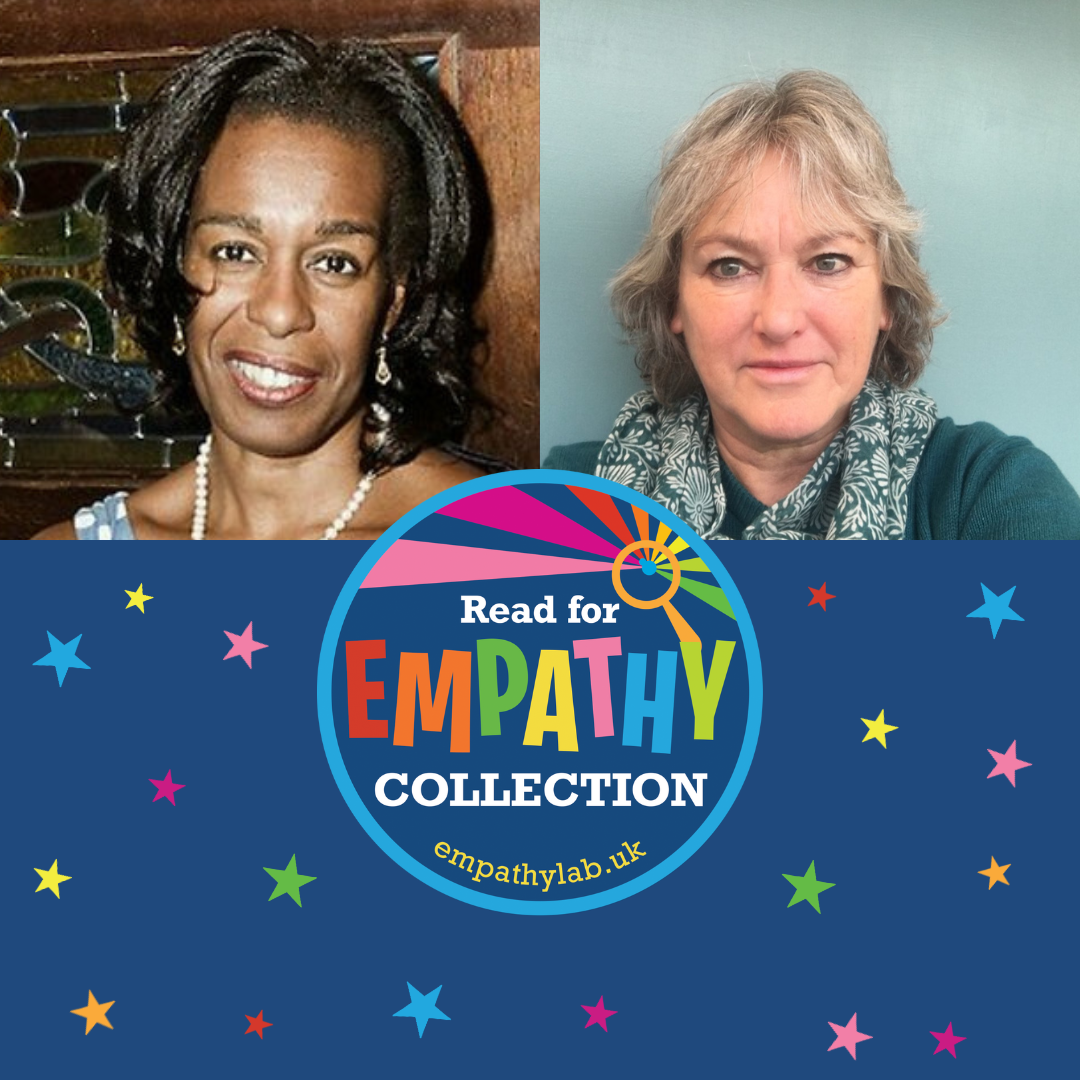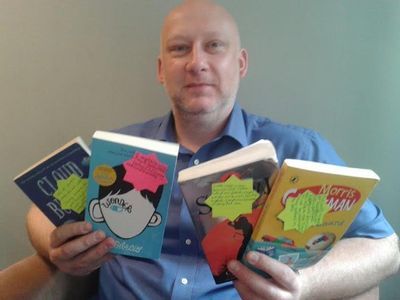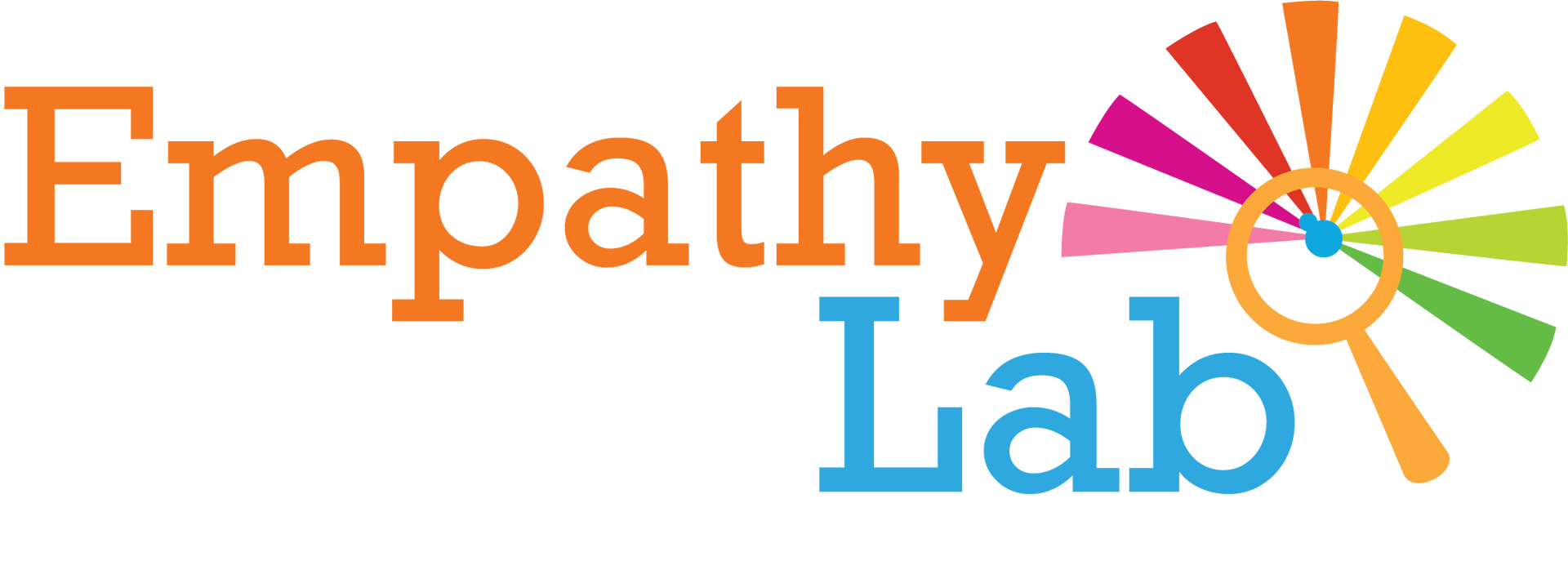The EmpathyLab Blog

Why has the sheer importance of empathy come to the fore in recent years? Why do we care so much about a concept that had seemed to be left to itself for so long?
Perhaps because there has been so much change and upheaval for our young people in recent years, leaving so many isolated from what we might term ‘real’ contact with others. Lockdown was for many a disaster. The proliferation of phones hasn’t helped. Financially stretched families are often starved of time that can be spent in casual, easy, contact with one another.
So gaining an understanding of others from fiction has become more and more important. Children have always learned from the books and stories they are offered. From the fairy tales, children who lived in an elemental world without luxuries or social safety nets learned the virtues that were so necessary back then to survival: courage, resourcefulness, endurance, quick wits, kindness to strangers.
Our own young people live more tightly under separate roofs, and we have seen the language of books change accordingly - to Mum, the babysitter, playgroup, park, baby sister, Dad’s girlfriend, the bully, happy, worried, sad. It’s the language of relationships and emotions now, and understanding and compassion liberate. They have become the twenty-first century equivalent of Hansel and Gretel’s pebbles gleaming in the moonlight to show the way out of the dark forest.
Frank Flanagan once said good writers “structure, explain and evaluate the experience of childhood and empower the child to come to terms with it. They enable the child to lead a full life."
How? Partly by quite unconsciously increasing self-knowledge and self-awareness. A young reader can’t help but see characters in books unconsciously as if in a mirror. "I'm not like that." "I worry about that too." "I would have been braver”, “slower to catch on”, “tempted to be more mean”. And when this sense comes of no longer being the only one in the world to have this problem, or to feel that way, the child not only comes to realise that they are not alone, but also to gather insights into how other people deal with the same worries or tackle the same problems. In short, they learn, vicariously, how other people tick.
We have so many young people who, it seems, sometimes as a result of their upbringing, often simply by nature, have somehow failed to acquire the tools to begin to think about their own situation. Through fiction they can often begin, safely, to explore the more subtle aspects of life around them - an insight into someone else's life. A child can share desk space with someone else all year and yet learn less about them than about a character in one short book that’s read to them at night. I try to show this in my novel On the Wall , where, over the school year, Finley’s quite exceptional gift for tranquillity and self-acceptance in an anxiety-inducing world causes one fellow pupil after another to look more deeply into themselves, and learn how to rebalance their own way of thinking to become, in the process, calmer, happier, or more accepting.
We all want, for our young people, peace of mind. An excellent start is to explore Lauren Child's wonderful 'Staring into Space' project: https://staringintospace.me/
Then, steep them in fiction. And where better to find the
best than at the EmpathyLab itself?
You can purchase Anne's book, On the Wall,
here

The collection consists of 65 books for 3-16 year olds, each chosen for its unique contribution in building young people’s empathy.
The primary collection for 3-11 year has 40 books; the secondary collection features 25 books for 12-16 year olds.

I am very fortunate to have been on the Read for Empathy booklist judging panel over the past few years.
I’m also a practising classroom teacher so I would like to consider how the books on the list can influence what happens in a school.
Firstly, along with many other schools, reading aloud is an important part of our school day, every day, almost without fail. All the teachers at my school are aware of the EmpathyLab booklist, and often use it as a basis for choosing their next class read. Knowing that the books touch on important aspects of our children’s lives is key; we all understand how important representation is in stories. These are books that make a difference, that lead to passionate discussions in the classroom and can actually influence children’s behaviour .
The booklists become increasingly valuable. We have a couple of hundred empathy texts at our school – they are there on merit. Staff often refer to previous lists if there as a particular aspect of empathy that they want to include or share with the children.
Our Year 6 Reading Champions often seek out picture books from the list to take in to KS1 and Reception when they read stories, so we already have the next generation educating each other about the importance of empathy. I love the fact they often meet beforehand (they tend to work in twos) to discuss what questions they might want to ask the children once the story has been read. After each booklist is released, they also spend several of their Friday recommendation slots in assembly talking about a couple of the books. We have parents in on our Friday assembly so it’s a great way to share the texts with them and help raise their awareness of our work.
We often use the books as our teaching texts for English, partly because they encourage excellent writing but also because they provide a fantastic opportunity for our pupils to develop their empathy skills. The Wild Robot by Peter Brown, Miraculous Journey of Edward Tulane by Kate DiCamillo, Freedom by Catherine Johnson, Eyes that Kiss in the Corners by Joanna Ho and A Street Dog Named Pup by Gill Lewis are all books that have made in into our English curriculum as a result of being on one of the Read for Empathy booklists. Well, that’s not strictly true - Edward Tulane was there before that as it’s one of my favourite ever books, but you hopefully take my point.
Reflecting on our empathy journey over the past few years, I’ve also found that the more books children read that address empathy, where they can relate to the characters and their choices, the more books they want to read. It’s almost a virtuous circle. Many begin to realise that such books can empower them to think about situations.
For example, as soon as we finished A Street Dog Named Pup last year, several of them immediately wanted to read other books by Gill Lewis. Because empathy is a thread that runs through much of her work ( Gorilla Dawn , Moon Bear , The Closest Thing to Flying and so on). Thanks to EmpathyLab's lists, I was able to point them in the direction of several other books, by her and others.
I think we agree that teaching children about empathy and providing them with opportunities to develop it is one of the most important gifts we can give them as adults. The fact that empathy has gone from being something that schools sort of understood a few years ago to being something that has got an increasingly solid evidence base is crucial.
There’s always been anecdotal evidence that reading stories is important for children and that it can change how they think but now that’s backed up with research. The empathy revolution (and it is a revolution) is only going to pick up more momentum over the next few years as the need for it becomes ever more apparent. Working in schools and in the world of children’s books means that we’re in the front line. There’s nowhere else I’d rather be.

Every day, our pupils at Moorlands Primary display empathy to their peers. Only last week, we were reading High Rise Mystery by Sharna Jackson together as a class and we’d reached the point in the book where we were making our predictions about the identity of the murderer. One of our pupils, who has severe special needs and really poor attendance due to chronic ill health, wanted to share his suggestion. After racking his brain, he announced that the murderer was Varjak Paw, who, as I’m sure you all know, is a talking cat with martial arts skills from a completely different book. Rather than laugh or snigger, the children all understood the situation and several of them praised him and told him what a fantastic suggestion it was. Instead of feeling ridiculed, he felt proud that he’d been able to contribute something to the discussion.
I could give more examples, that of the child walking around the playground to try and find a few dropped coins because he wanted to help his mum buy food for his family, that of the pupil quietly giving her breaktime snack to one of her friends because she knew she hadn’t had any breakfast again, there are so many stories I could share about how our pupils display empathy towards others.
Schoolchildren are currently facing a whole range of crises at school and at home. The most pressing and most visible of these is the cost of living crisis, but they’re also dealing with the aftermath of Covid, the pressure of social media, the impact of climate change and the increasingly stressful education system. This is where teaching them about empathy can have a massive impact and why the work of Empathy Lab is so essential.
As teachers, we know that if we teach them about empathy, through stories, through books, through reading, it will develop their empathy skills, and it will encourage them to put those skills into action
By learning about empathy, they understand that they’re not alone, they understand that other people are going through the same situation, feeling the same emotions, dealing with the same problems. They know they can help each other, support their families and actually have an impact. That’s why, although things do appear bleak at the moment, I’m filled with hope that the next generation will make a difference, will make things better. They increasingly understand that social action works.
Every time I talk about Empathy Lab, I try and emphasise the difference their work has made in my school, Moorlands. The Empathy Resolutions our pupils and staff wrote on Empathy Day in June are being reviewed during Empathy Action Month. I already know that the child whose resolution was to spend less time on her phone and more time talking to her mum has done it, because her mum told me, ironically via a message she sent on her phone. I know that the child who wanted to share his love of reading has done it because he still goes down to the nursery every week to read them stories. I can’t wait to hear how the other pupils have got on during our Empathy assembly, alongside watching some of the videos from the amazing authors that Empathy Lab have got lined up.
Children learn a lot during their time at school but learning about empathy and how to put it into action will transform their lives as well as the lives of their peers, their families, in fact everyone they ever meet. Just think about the impact that a whole generation of empathy-aware children could have.
Jon is a senior teacher at & English lead at Moorlands Primary School in Norfolk. He has a passion for developing genuine reading cultures, and is on the judging panel for EmpathyLab's annual Read For Empathy Collection. He is the 2018 winner of the Egmont Reading for Pleasure Experienced teacher award and coordinates the national Patron of Reading initiative, which supports authors and poets in developing relationships with schools. Jon is a member of the UKLA National Council, a regular contributor to the Open University Reading For Pleasure website and a reviewer for Books for Keeps and Just Imagine Story Centre.
In his spare time, Jon writes a blog on building reading communities in schools and talks about books at every possible opportunity.

I'm Nayla Abu Fadil, a teacher from Lebanon. My story with EmpathyLab began almost two years ago today, on the August 4th 2020, when I heard a huge explosion. We all heard it, as if it was under our very homes.
The Beirut Blast caused hundreds of deaths, thousands of injuries and made more than 300,000 people homeless. Homes were turned to glass and bricks.But unlike you'd expect in Europe or elsewhere, the government provided no support that day. People were left alone. Alone to transport injured loved ones to hospitals, search for their family members among the rubble, or clean up the streets.
As images and videos of the situation were broadcast around the world, I realized that what we were watching was empathy, pure and simple. People treating their own wounds after the blast, a community rebuilding their own city. This is the power of empathy. Citizens supporting fellow citizens, having compassion, and taking the role of a government that had vanished.
As a primary teacher, the concept of empathy resonated with me particularly because we learn much about learner profiles in school, and one of them is the caring type: people who are empathetic. But on that awful day, in some way, we were all carers.
I began reading about empathy after my experience, researching myself online and looking for titles of story books to teach our students. My research led me to EmpathyLab, and I quickly subscribed to the newsletter. It was exactly what I'd been looking for!

It seems reasonable to presume that we have reached a point in the evolution of our species at which enough lives have been lived for key lessons to have been learned. A point at which we should inherently have the capacity to be compassionate, respectful, considerate and kind towards anyone and everyone we encounter. And a point at which the ability to sympathise and empathise with those who share our immediate and wider world should be our default setting. Yet despite the wickedness that has been unleashed on individuals and communities of people around the world and the atrocities that have marked and continue to mark the tapestry of our timeline, this sadly does not seem to be the case. Not only do our societies struggle to exercise these virtues but they also inflict pain upon and exacerbate the struggles of others that they deem lesser or different.
When things are as challenging as they have been in recent times, it can feel like we need a miracle to get us through, a hero to swoop in with a cape to make it all better. But what our time on this planet should have taught us by now is, that heroes don’t come in the muscle packed lycra, draped in a cape image fed to us in comics and on the silver screen. Instead, heroism comes in the form of everyday people of all shapes and sizes, from all walks of life, finding the heart and energy to feel for their fellow humans and draw on this to undertake small and large acts of kindness.
Empathy not only has the capacity to unlock all of these positive traits but can also counteract the cruelty that flourishes in spaces that are void of it. With that said, it is important to recognise empathy as a muscle that must be exercised and one of the greatest tools to aid in such exertion is the humble book. It is therefore apt that the theme of this year’s Empathy Day is reflecting on empathy as our human superpower. The carefully curated book collections featuring a rich range of titles that support young readers to channel empathy, along with the specially designed empathy-boosting resources will help readers to nurture and build that superpower.
Books provide a space for us to walk around in and to explore how we feel and what we think about a whole range of things. Books can help build our understanding of the world and enable us to make sense of our place in it. Books can challenge our thinking and break down barriers. And this year’s collection can also help super-charge empathy as a key superpower.
The 2022 Read For Empathy collections feature important titles such as Catherine Johnson’s Queen of Freedom and Alex Wheatle’s Cane Warriors, that platform significant figures in history who played crucial roles in resisting oppressive forces and whose humanity and heroism is rarely depicted or acknowledged in mainstream discourse. These titles along with David Olusoga’s Black and British deepen and broaden understanding of how the past has shaped the Britain of today, encouraging empathy with the struggle for fair and just treatment for longstanding marginalised communities.
Poetry is a particularly powerful medium that provides scope for sincere, heartfelt insights into the thoughts and feelings of others and through such honesty gives licence to the reader to feel, connect and reflect. The titles in this year’s collection from Manjeet Mann’s powerfully moving verse novel, The Crossing , to the rousing collection curated by Nikita Gill, SLAM! You’re Gonna Wanna Hear This and Karl Nova’s thoughtful and introspective collection The Curious Case of Karl Nova all invite readers to channel and supercharge their empathy muscles in a range of important ways.
All of the picture books, graphic novels, novels and
non-fiction titles are uniquely, creatively and sensitively crafted and capture
a range of voices, styles and themes, meaning there’s definitely something for
everyone across these collections. These books inspire feelings of connection
and encourage taking action to improve the world around us and beyond. These
books spark the hope that is much needed during these times.
Farrah Serroukh is the Research and Development Director at CLPE, and leads the charity’s important Reflecting Realities research. She also advises EmpathyLab on the diversity and inclusion aspects of our annual Read for Empathy book collections.


